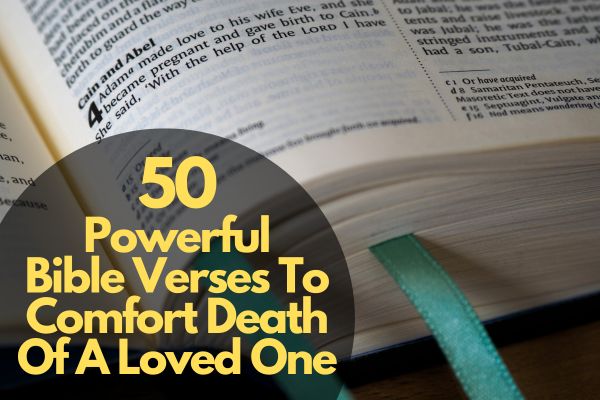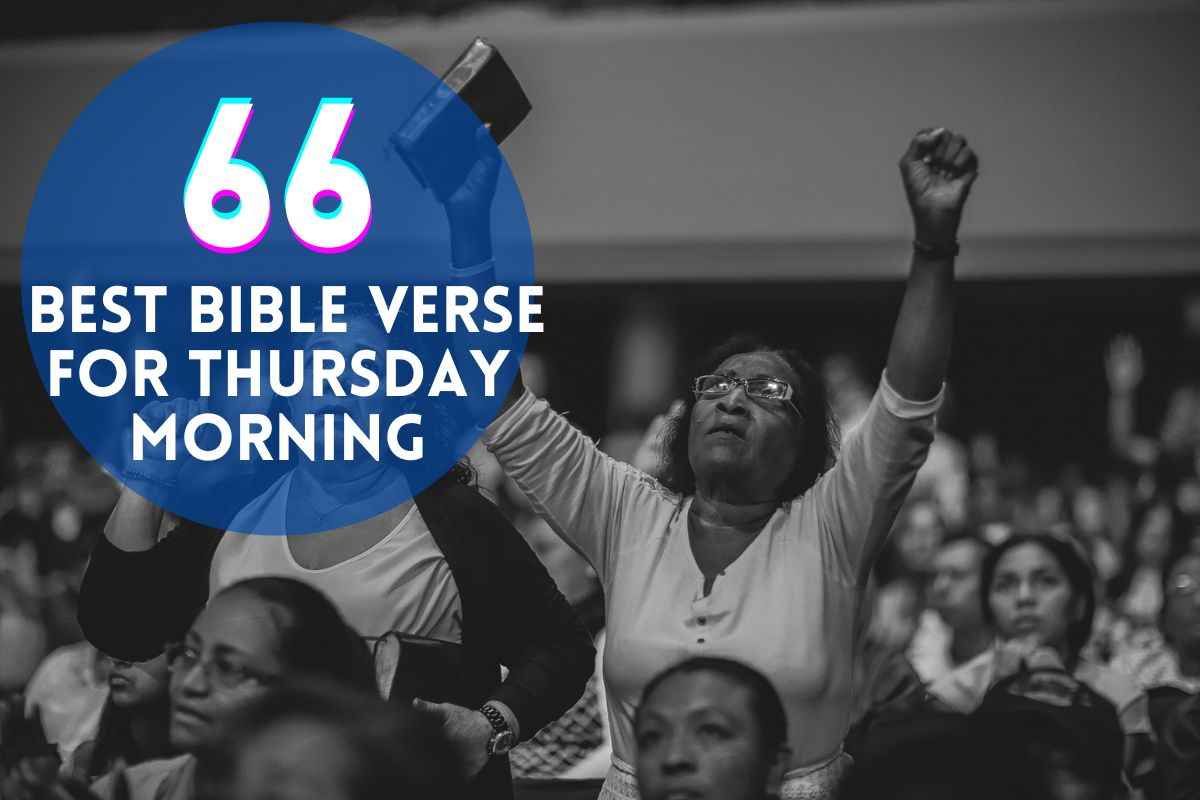Women in church leadership is a growing interest and discussion topic in many Christian communities worldwide. As more women seek to become involved in ministry and leadership roles in the church, they need to explore and understand the biblical, theological, and cultural factors that may impact their ability to serve in these positions.
This includes looking at examples of women in leadership roles in the Bible, understanding different denominational perspectives on women in ministry, and examining the practical challenges and opportunities of leadership in the church.
By exploring the role of women in church leadership, we can gain a deeper understanding of how women can serve and lead in the church today and how we can better support and empower women in ministry.
Women In Church Leadership
There are several examples of women in church leadership roles in the Bible. Here are a few examples:
- Deborah – Deborah was a prophetess and a judge in ancient Israel. She held a position of authority and was respected for her wisdom and leadership skills. She led the Israelites in battle and helped to bring peace to the land (Judges 4-5).
- Huldah – Huldah was a prophetess in ancient Judah during the reign of King Josiah. When Josiah discovered the Book of the Law, he sent it to Huldah for her interpretation. She confirmed the book’s authenticity and prophesied the coming judgment on Judah (2 Kings 22:14-20).
- Priscilla – Priscilla was a Christian woman who, along with her husband Aquila, worked closely with the Apostle Paul. They helped to establish churches in Corinth and Ephesus and taught the gospel to Apollos (Acts 18:24-28).
- Phoebe – Phoebe was a deaconess in the church at Cenchreae. Paul commended her for her service to the church and hospitality to him (Romans 16:1-2).
- Junia – Junia was a woman who was “outstanding among the apostles” (Romans 16:7). This suggests that she held a leadership position and authority within the early Christian church.
- Mary Magdalene – Mary Magdalene was a disciple of Jesus who was present at his crucifixion and was the first person to witness his resurrection. She was entrusted with the critical task of sharing the good news of the resurrection with the other disciples (John 20:11-18).
These are just a few examples of the many women in the Bible who played essential roles in church leadership and ministry.
Contemporary Debates on Women in Church Leadership
The contemporary debates on women in church leadership are multifaceted and often reflect broader discussions on gender roles and societal equality.
Some argue that women should be allowed to hold any leadership role within the church, including ordination as pastors. In contrast, others say women’s leadership should be limited to specific functions, such as teaching or administration.
There are also debates over the interpretation of biblical texts related to women in leadership, with some arguing for a more literal interpretation of scripture and others emphasizing a more contextual and nuanced reading.
Many denominations and churches have taken different positions on women in leadership, and there continue to be discussions and disagreements on this topic. Some argue that greater inclusion of women in church leadership is necessary for the health and vitality of the church, while others believe that maintaining traditional gender roles is essential to preserve the integrity of church teachings. Overall, the contemporary debates on women in church leadership reflect ongoing discussions around gender and power in the broader society and have important implications for the church’s future.
Biblical Perspectives on Women in Church Leadership
The Bible offers various perspectives on women in church leadership, with differing interpretations among Christian denominations and traditions. Some biblical texts explicitly mention women in leadership roles, while others are more implicit or ambiguous. Here are some critical perspectives:
- Equality: Many Christians interpret Galatians 3:28 as a statement of gender equality in Christ: “There is neither Jew nor Gentile, neither slave nor free, nor is there male and female, for you are all one in Christ Jesus.” This view emphasizes that men and women have equal standing and worth in the eyes of God and should have equal opportunities for leadership roles in the church.
- Complementarity: Other Christians interpret biblical texts such as Ephesians 5:22-33 to emphasize the complementary roles of men and women in marriage and the church. This view holds that men and women have different but complementary gifts and parts in leadership, with men as spiritual leaders and women as supporters and helpers.
- Role restrictions: Some biblical texts are interpreted by some Christians as restricting the role of women in church leadership. For example, 1 Timothy 2:11-15 instructs women to learn in quietness and submission, not to teach or have authority over men. This view holds that women, such as pastors or priests, should not contain certain leadership positions.
- Examples of women leaders: Some Christians mention women in leadership positions in the Bible, such as Deborah, Huldah, and Priscilla. This view holds that women have held leadership positions in the past and should continue to have opportunities for leadership roles in the present.
There are various biblical perspectives on women in church leadership, with different interpretations and emphases among Christian traditions. The performance of specific biblical texts related to women in leadership can be a source of debate and disagreement among Christians.
Women’s Leadership in Denominational Structures
Women’s leadership in denominational structures varies widely across religious traditions and organizations. In some denominations, women are fully integrated into leadership roles, while in others, they may be excluded from certain positions or limited in their opportunities for leadership.
In some Christian denominations, women serve as pastors, bishops, and senior leaders. For example, the Episcopal Church in the United States has had female bishops since the 1980s, and the Evangelical Lutheran Church in America began ordaining women in 1970. In the Presbyterian Church (USA), women have been ordained as pastors and elders since the 1950s.
However, in other Christian denominations, such as the Roman Catholic Church and some branches of the Orthodox Church, women are not ordained as priests or bishops, and their leadership opportunities may be more limited. Some denominations allow women to serve in leadership but restrict them from certain positions, such as teaching or preaching.
Outside of Christianity, there are variations in women’s leadership in different religious traditions. For example, in Reform and Conservative Judaism, women can serve as rabbis and hold leadership positions. Still, in Orthodox Judaism, they are not allowed to be rabbis or serve as prayer leaders. In Islam, some countries and traditions have female religious leaders, such as female imams, while others do not allow women to lead prayer or hold formal spiritual leadership roles.
Overall, the degree to which women can hold leadership positions in denominational structures varies widely depending on the religious tradition and the specific organization within that tradition.
Women in Pastoral Ministry Roles
The role of women in pastoral ministry is a complex and often debated topic within Christian circles. While some denominations have fully embraced women in pastoral roles, others still hold more traditional views that limit women’s opportunities for leadership in the church. Here are some Bible verses and examples of women in pastoral ministry roles:
- Deborah – Judges 4-5 Deborah was a prophetess and a judge in Israel. God called her to lead the Israelites into battle against their enemies, and she was also a spiritual leader for the people.
- Phoebe – Romans 16:1-2 Phoebe is mentioned in the New Testament as a deaconess and a church patron at Cenchreae. She was entrusted with the critical task of delivering Paul’s letter to the Romans.
- Junia – Romans 16:7 Junia was a prominent apostle and leader in the early church. She is mentioned in Romans 16 as one of Paul’s “kinsfolk” who was imprisoned with him for the gospel.
- Priscilla – Acts 18:24-26, Romans 16:3-5, 1 Corinthians 16:19 Priscilla and her husband Aquila are mentioned in several places in the New Testament as fellow workers and co-laborer in the gospel. She is also credited with teaching Apollos more accurately about the way of God.
- Lydia – Acts 16:11-15, 40 Lydia was a successful businesswoman who was converted to Christianity through Paul’s ministry. She and her household were baptized and showed hospitality to Paul and his companions.
These are just a few examples of women in pastoral ministry roles from the Bible. While the interpretation and application of these examples may vary among denominations, they prove that women have played essential roles in the church since its early days.
Women in Administrative and Support Roles
Many women in the Bible served in administrative and support roles. Here are a few examples, along with Bible verses that highlight their contributions:
- Deborah – Judges 4:4-5 “Now Deborah, a prophet, the wife of Lappidoth, was leading Israel at that time. She held court under the Palm of Deborah between Ramah and Bethel in the hill country of Ephraim, and the Israelites went up to her to have their disputes decided.”
Deborah was a prophetess and a judge in Israel. She was a wise and discerning leader who counseled and guided her people. She also led Israel’s army to victory over their enemies.
- Phoebe – Romans 16:1-2 “I commend to you our sister Phoebe, a deacon of the church in Cenchreae. I ask you to receive her in the Lord in a way worthy of his people and to give her any help she may need from you, for she has been the benefactor of many people, including me.”
Phoebe was a deaconess in the early Christian church. She served the church in Cenchreae and was known for her generosity and support of other believers.
- Priscilla – Acts 18:24-26 “Meanwhile a Jew named Apollos, a native of Alexandria, came to Ephesus. He was a learned man, with a thorough knowledge of the Scriptures. He had been instructed in the way of the Lord, and he spoke with great fervor and taught about Jesus accurately, though he knew only the baptism of John. He began to speak boldly in the synagogue. When Priscilla and Aquila heard him, they invited him to their home and explained to him the way of God more adequately.”
Priscilla was a fellow worker in the gospel with her husband, Aquila. Together, they taught and mentored Apollos, a gifted speaker who lacked a complete understanding of the gospel. Priscilla was known for her hospitality and willingness to help others learn and grow in their faith.
- Lydia – Acts 16:13-15 “On the Sabbath we went outside the city gate to the river, where we expected to find a place of prayer. We sat down and began to speak to the women who had gathered there. One of those listening was a woman from the city of Thyatira named Lydia, a dealer in purple cloth. She was a worshiper of God. The Lord opened her heart to respond to Paul’s message. When she and the members of her household were baptized, she invited us to her home. ‘If you consider me a believer in the Lord,’ she said, ‘come and stay at my house.’ And she persuaded us.”
Lydia was a successful businesswoman who worshiped God. When she heard the gospel message from Paul, she responded with faith and was baptized. She opened her home to Paul and his companions and supported their ministry.
These women demonstrate that women have important roles to play in administration and support. They were wise, discerning, generous, and hospitable, and they used their gifts and talents to support and advance the work of God.
Women in Evangelism and Missions
Many women in the Bible played essential roles in evangelism and missions. Here are a few examples, along with Bible verses that highlight their contributions:
- Mary Magdalene – Mark 16:9-10 “When Jesus rose early on the first day of the week, he appeared first to Mary Magdalene, out of whom he had driven seven demons. She went and told those who had been with him and who were mourning and weeping.”
Mary Magdalene was a devoted follower of Jesus who was present at his crucifixion and burial. She was the first person to witness the resurrection of Jesus and was commissioned by him to go and tell his disciples the good news.
- Samaritan Woman at the Well – John 4:28-30, 39 “Then, leaving her water jar, the woman went back to the town and said to the people, ‘Come, see a man who told me everything I ever did. Could this be the Messiah?’ They came out of the town and made their way toward him…Many of the Samaritans from that town believed in him because of the woman’s testimony, ‘He told me everything I ever did.'”
The Samaritan woman at the well encountered Jesus and was transformed by his message. She then told the people of her town about Jesus, leading many of them to believe.
Dorcas – Acts 9:36-39
“In Joppa there was a disciple named Tabitha (in Greek her name is Dorcas); she was always doing good and helping the poor. About that time she became sick and died, and her body was washed and placed in an upstairs room. Lydda was near Joppa; so when the disciples heard that Peter was in Lydda, they sent two men to him and urged him, ‘Please come at once!’ Peter went with them, and when he arrived he was taken upstairs to the room. All the widows stood around him, crying and showing him the robes and other clothing that Dorcas had made while she was still with them.”
Dorcas was a Joppa disciple known for her good works and generosity. After she died, Peter was called to come and pray for her, and she was raised from the dead. Her life and testimony impacted those around her even after she was gone.
Priscilla – Acts 18:24-26
“Meanwhile a Jew named Apollos, a native of Alexandria, came to Ephesus. He was a learned man, with a thorough knowledge of the Scriptures. He had been instructed in the way of the Lord, and he spoke with great fervor and taught about Jesus accurately, though he knew only the baptism of John. He began to speak boldly in the synagogue. When Priscilla and Aquila heard him, they invited him to their home and explained to him the way of God more adequately.”
Priscilla and her husband Aquila played an essential role in the early Christian church. Together, they taught and mentored Apollos, a gifted speaker who lacked a complete understanding of the gospel. Priscilla’s wisdom and knowledge were instrumental in helping Apollos grow in his faith and ministry.
These women demonstrate that women have essential roles in evangelism and missions. They were faithful and courageous, using their influence and resources to advance the message of Jesus Christ.
Women in Interfaith Dialogue and Peacemaking
Interfaith dialogue and peacemaking have been critical throughout history, and the Bible provides many examples of women who worked towards these goals. Here are a few examples, along with Bible verses that highlight their contributions:
Rahab – Joshua 2:1-14
“Then Joshua son of Nun secretly sent two spies from Shittim. ‘Go, look over the land,’ he said, ‘especially Jericho.’ So they went and entered the house of a prostitute named Rahab and stayed there… Now then, please swear to me by the Lord that you will show kindness to my family, because I have shown kindness to you. Give me a sure sign that you will spare the lives of my father and mother, my brothers and sisters, and all who belong to them, and that you will save us from death.'”
Rahab was a prostitute living in Jericho who helped the Israelite spies by hiding them from the authorities. In exchange, she asked for protection for herself and her family when the Israelites conquered the city. Her faith in God and willingness to help those from a different faith community helped to save her and her family, and she later became part of the lineage of Jesus Christ.
Abigail – 1 Samuel 25:2-42
“Abigail came to Nabal, and behold, he was holding a feast in his house, like the feast of a king. And Nabal’s heart was merry within him, for he was very drunk. So she told him nothing at all until the morning light. In the morning, when the wine had gone out of Nabal, his wife told him these things, and his heart died within him, and he became as a stone. And about ten days later the Lord struck Nabal, and he died…And David sent and spoke to Abigail, to take her to him as his wife.”
Abigail was married to a wealthy man named Nabal, who refused to help David and his men. Abigail, recognizing the danger this could bring to her community, intervened and offered David and his men food and provisions. She successfully prevented bloodshed and conflict between the two groups and helped bring peace. Her wise and diplomatic actions prevented unnecessary violence and helped her community.
The Widow of Zarephath – 1 Kings 17:8-24
“Then the word of the Lord came to him: ‘Go at once to Zarephath in the region of Sidon and stay there. I have directed a widow there to supply you with food.’ So he went to Zarephath. When he came to the town gate, a widow was there gathering sticks.
He called to her and asked, ‘Would you bring me a little water in a jar so I may have a drink?’…She went away and did as Elijah had told her. So there was food every day for Elijah and for the woman and her family.”
The Widow of Zarephath was a Gentile woman who provided hospitality to the prophet Elijah during the famine. Initially hesitant to help, she eventually trusted God and shared her meager resources with Elijah. Her generosity and faithfulness helped sustain her family and Elijah during a difficult time.
These women show that interfaith dialogue and peacemaking can be powerful tools for building relationships and creating peace. They demonstrated courage, wisdom, and faithfulness in their actions, and their examples can inspire us to work toward peace and understanding in our communities.
Bible Verses On Women’s Leadership In Church
Deborah – Judges 4:4-10
“Now Deborah, a prophetess, the wife of Lappidoth, was judging Israel at that time. She held court under the Palm of Deborah between Ramah and Bethel in the hill country of Ephraim, and the Israelites came to her to have their disputes decided… Barak said to her, ‘If you go with me, I will go; but if you don’t go with me, I won’t go.’ ‘Very well,’ Deborah said, ‘I will go with you.'”
Deborah was a prophetess and judge in Israel, and she held court and made decisions for her people. She was a strong leader who helped her people in times of trouble, and her example shows that women can be influential leaders in the church.
Phoebe – Romans 16:1-2
“I commend to you our sister Phoebe, a deacon of the church in Cenchreae. I ask you to receive her in the Lord in a way worthy of the saints and to give her any help she may need from you, for she has been a great help to many people, including me.”
Phoebe was a deaconess in the early church, and Paul commends her to the Romans as a trusted servant of the church who had been a great help to many people. Her leadership and service in the church demonstrate that women can hold positions of authority and responsibility.
Priscilla – Acts 18:26
“He began to speak boldly in the synagogue. When Priscilla and Aquila heard him, they invited him to their home and explained to him the way of God more adequately.”
Priscilla and her husband Aquila were early leaders in the church who worked together to teach and guide others. In this verse, they take aside Apollos and instruct him in the ways of God. Their partnership shows that women can be influential leaders and teachers in the church.
These are just a few examples of women in leadership roles in the Bible. These women were strong, capable leaders respected and valued by their communities. Their models can inspire us to recognize and support the leadership potential of women in our churches and communities.
FAQ
What Are The Duties Of A Woman Leader In The Church
The duties of a woman leader in the church may vary depending on the denomination and specific role, but some general responsibilities may include:
- Teaching and Preaching: Women leaders in the church may be responsible for teaching and preaching to congregations or leading Bible study groups.
- Discipleship: Women leaders may mentor and disciple other women in the church, helping them to grow in their faith and relationship with God.
- Pastoral Care: Women leaders may provide pastoral care and counsel to church members who are going through difficult times, such as illness, grief, or other personal struggles.
- Administration: Women leaders may manage church programs and ministries, including planning events, working with volunteers, and overseeing finances.
- Outreach: Women leaders may lead or participate in outreach efforts to serve the community and share the gospel with others.
Overall, the duties of a woman leader in the church may involve a combination of spiritual and practical responsibilities; all focused on serving and ministering to others.
Can A Woman Be A Worship Leader
Yes, a woman can be a worship leader. There is no biblical prohibition against women leading worship, and many churches have women serving in this role.
The Bible does not specify gender requirements for leading worship; the emphasis is on teaching the congregation to praise and honor God through music and song. There are examples in the Bible of women leading worship, such as Miriam, Deborah, and the daughters of Zelophehad.
Ultimately, whether or not a woman can be a worship leader may depend on the specific beliefs and practices of the individual church or denomination.
Role Of A Woman Leader In The Church
The role of a woman leader in the church may vary depending on the specific church and denomination but generally involves serving and ministering to others in various ways.
Women leaders may be responsible for teaching and preaching, discipleship and mentoring, pastoral care, administration, and outreach.
They may also play a key role in supporting and empowering other women in the church. Ultimately, the role of a woman leader in the church is focused on serving God and others and may involve a combination of spiritual and practical responsibilities.
Conclusion
In conclusion, the topic of women in church leadership is complex and multifaceted, encompassing biblical, theological, and cultural considerations. Despite the challenges and obstacles women may face in pursuing leadership roles in the church, many examples of women in the Bible and history have served as influential leaders and influencers.
By continuing to explore and discuss this topic, we can work towards a more inclusive and equitable church community that values the contributions of women in ministry and leadership. As we seek to empower and support women in church leadership, we can help to create a stronger, more vibrant, and more effective church for all.







